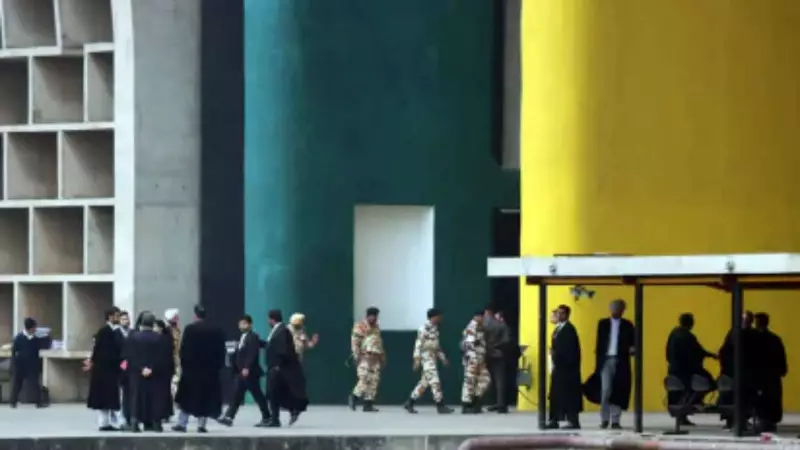
The Chandigarh Bar Council has initiated disciplinary proceedings against a prominent lawyer for writing a letter containing what it describes as "derogatory" and "unparliamentary" language directed at the Chief Justice of the Punjab and Haryana High Court.
In a significant development that has sent ripples through the legal community, the council has served a formal notice to Naveen S. Bhardwaj, who currently serves as the Secretary of the Punjab and Haryana High Court Bar Association. The action comes in response to a controversial letter Bhardwaj penned to Chief Justice Ravi Shanker Jha.
Contentious Communication Sparks Legal Firestorm
The Bar Council's notice specifically highlights concerns about the "tone and tenor" of Bhardwaj's communication, stating that certain portions of the letter crossed professional boundaries and violated the standards of conduct expected from legal practitioners.
According to sources familiar with the matter, the council has given Bhardwaj a two-week window to submit his written response explaining his position regarding the allegations. The notice emphasizes that failure to provide a satisfactory explanation could lead to further disciplinary measures under the Advocates Act of 1961.
Legal Community Reacts to Unprecedented Move
The Bar Council's decision to formally censure a sitting office-bearer of the Bar Association has generated mixed reactions within legal circles. Some senior advocates have welcomed the move as necessary to maintain the dignity of the judiciary, while others have expressed concerns about the implications for lawyers' freedom to express legitimate grievances.
This incident comes at a time when the relationship between the bar and the bench has been under scrutiny, with ongoing discussions about maintaining proper decorum while ensuring transparent communication between the judiciary and legal practitioners.
What Comes Next in the Disciplinary Process?
The Bar Council's notice represents the first formal step in what could become a comprehensive disciplinary proceeding. Legal experts suggest that depending on Bhardwaj's response and the council's assessment of its merits, the matter could potentially escalate to a full-scale inquiry before the disciplinary committee.
The outcome of this case is being closely watched as it may set important precedents regarding the boundaries of professional communication between lawyers and the judiciary, particularly when it involves sitting office-bearers of bar associations.





